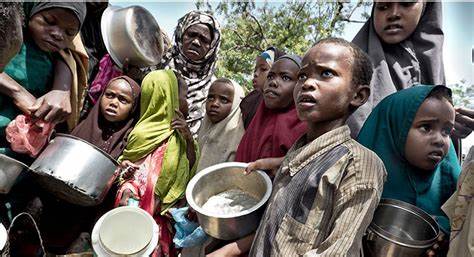According to the World Food Programme, a part of the United Nations, 32% (64.3 million) of Nigerians lack access to enough food to eat.
In 19 different nations, the organisation estimates that 170 million people lack access to enough food. According to a March 28 update of the “HungerMapLIVE: Western Africa insights and key trends,” the nations with the highest prevalence of inadequate food consumption are Niger, Mali, Burkina Faso, Guinea, Chad, Sierra Leone, Cameroon, Liberia, Central African Republic, Togo, Guinea Bissau, and Nigeria.
The World Bank said that over the last three months, food inadequacy in Nigeria increased from 29% to 32% in its most recent Food Security Update. It was noted that a substantial portion of the inhabitants in Nigeria and other West African nations have difficult food and nutrition conditions.
The bank cited the WFP when it stated that the four nations with the highest frequency of inadequate food consumption were Niger (18.2 million people, or 81 percent of the population), Mali (13.9 million, or 73 percent), Burkina Faso (13 million, or 66 percent), and Guinea (7.7 million, 62 per cent).
“Chad (9.2 million, 57 per cent), Sierra Leone (4.4 million, 53 per cent), Cameroon (10.2 million, 40 per cent), Liberia (1.7 million, 38 per cent), Central African Republic (1.6 million, 35 per cent), Togo (2.7 million, 34 per cent), Guinea-Bissau (0.6 million, 34 per cent), and Nigeria (64.7 million, 32 per cent).”
Poor or borderline food consumption, as indicated by the Food Consumption Score, is what the Global Bank defines as insufficient food consumption. It was clarified that it wasn’t the same as food insecurity.
The Washington-based bank predicts that if the dry season continues in the next months, West Africa’s condition with regard to food security will deteriorate. It was noted that while domestic food price inflation is still substantial, it is more severe in Africa, North America, Latin America, South Asia, Europe, and Central Asia.





